
Mini-Limmud conference at Trasalis in Trakai, Lithuania November 25 through 27.
Program in Russian

Mini-Limmud conference at Trasalis in Trakai, Lithuania November 25 through 27.
Program in Russian
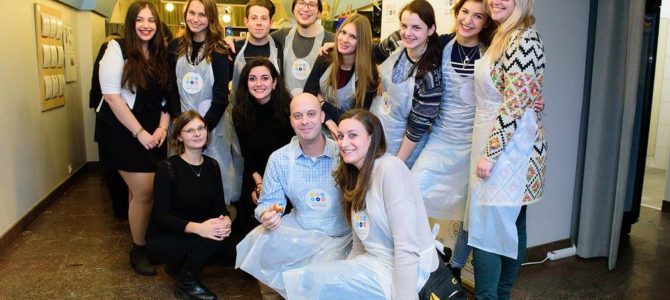
The World Union of Jewish Students has nominated the Lithuanian Union of Jewish Students of the Lithuanian Jewish Community for awards in two categories.
Lithuanian Union of Jewish Students director Amit Belaitė is up for one of the awards, and says her friends and colleagues in the Union need to learn more about Jewish life and Jewish traditions. She said Jewish students in Lithuania have been cut off from many Jewish things, including how to celebrate Sabbath, largely because Jewishness was forced into hiding in Lithuania after the Holocaust. She added there is a revival underway in Lithuania, including of Jewish holidays our great-grandparents celebrated, and said now there is a great deal of communication with Litvaks of the same age as Union members living around the world who have not lost their traditions.
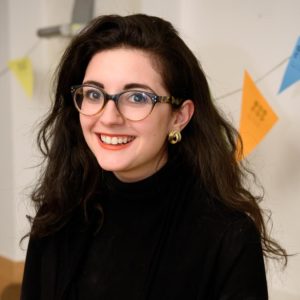
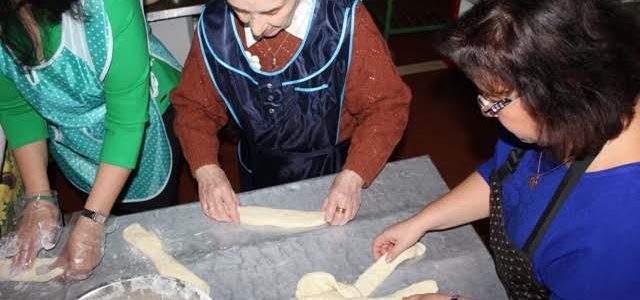
The Lithuanian Cultural Service supports the Lithuanian Jewish Community’s campaign to revive the baking of challa in the different regions of Lithuania.
On November 11 members of the Kaunas Jewish Community met together and separately to bake challa, and there was a strong sense of concentration and responsibility but also a lot of positive emotions. The fresh-baked challa adorned the Sabbath table within hours. Iser Shreiberg, the chairman of the Kaunas Hassidic religious community, gave an interesting presentation o the symbolism and traditions of making challa. Guests included former Kaunas ghetto prisoner Asia who came all the way from New York with her husband and son these many years later to her hometown to see her memories of early childhood again and to look for traces of the stories her mother told her.
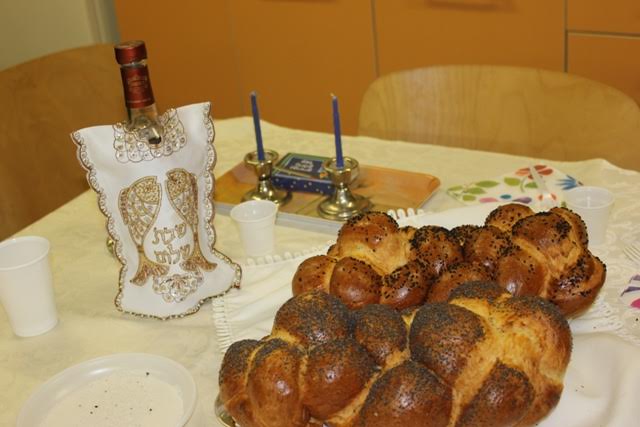
The Panevėžys Jewish Community joined the Shabbos Project November 11 to bake challa bread. Participants included staff from the educatio department, teachers and Community members.
Preparations for the baking event got underway in the morning and all the necessary ingredients were purchased: eggs, yeast, oil, salt and poppy seeds. The main ingredient was of course highest-quality flour. Kosher flour left over from last year worked perfectly for making the dough. Different recipes were suggested, but in the end the traditional recipe was used, because the Panevėžys Jewish Community’s oven is not large and can’t be used for large-scale production. Housewife Virginija prepared the dough.
Administrator Lina gave a brief talk about challah-baking traditions in Jewish families. Although every housewife has her own recipe for challah bread baked for the Sabbath, the result is always the same: a blessed and delicious loaf of challa.
The chess tournament to be held by the Rositsan and Maccabi Chess Club at 11:00 A.M. on Sunday, November 20, will be dedicated to the memory of Alvydas Rajunčius.
The tournament will take place at the Lithuanian Jewish Community, Pylimo street no. 4, Vilnius. Tournament director: FIDE master Boris Rositsan.
For more information and to register:
info@metbor.lt
+3706 5543556
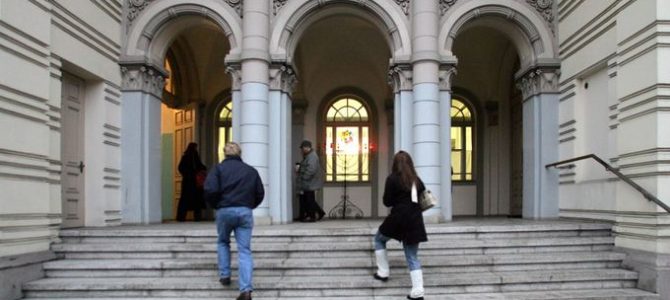
Dear Rabbi Krinsky,
As you may know, the Vilnius Choral Synagogue has been closed for repairs and we need to confirm some very basic rules we will need you to respect after the synagogue is reopened.
We would like you to know that your refusal to follow these rules will unfortunately force us to not allow you or anyone else disobeying these rules to enter the building and participate in the services.
The rules in question are as follows:
1. Vilnius Choral Synagogue is run by rabbis who have been officially appointed by the Lithuanian Jewish Community.
2. Any religious activities taking place in the synagogue must be approved by the official Community rabbis and any other activities must be approved by the chairman of the Vilnius Religious Jewish Community.
3. Anyone who wishes to organize a party, wedding ceremony, brit milah, lecture, class, meal, speech, bar/bat mitzvah or any other event has to confirm it with an official Community rabbi and receive approval ahead of time.
4. Any food or food products must be inspected and approved by an official Community rabbi before being brought into the synagogue.
5. Any prayer books or learning material/books for studying must be approved by an official Community rabbi before being brought into the synagogue.
6. Every Jew is welcome to come to the synagogue and participate in our services, but no one may conduct any services or any part of a service without the permission of the official Community rabbis. Only Community rabbis have the right to decide on the procedures of aliyos, hazakos, yorzeit and all tefillim-related issues according to established Lithuanian custom.
Any person who does not respect these basic rules cannot be a part of the synagogue (just as in all other synagogues).
We kindly ask you to acknowledge that you are ready to follow the aforementioned rules of the synagogue. Regrettably, until you do so, we have no other choice but to bar your entry to the synagogue.
Thank you for your understanding, and we await your reply.
Signed,
Rabbi Krelin
Rabbi Izakson
November 11, 2016
No. 367
To: Mayor Remigijus Šimašius
Vilnius Municipal Administration
On Removal of the Plaque Commemorating Jonas Noreika
November 11, 2016
Vilnius
Currently there is a commemorative plaque on display on the façade of the library of the Lithuanian Academy of Sciences building located at Žygmantų street no. 1/8 in Vilnius dedicated to the dubious fame of Jonas Noreika, [also] known by the pseudonym General Vėtra. Information has reached us the plaque commemorating this person on the building at Žygmantų street no. 1/8 possibly was put up illegally, without required permission from the municipality of the city of Vilnius, and possibly in violation of the requirements of other laws as well. Please provide the Lithuanian Jewish Community with all documentation related to installation of the aforementioned commemorative plaque.
The honoring by commemorative plaque of this person with his undisputed role in committing genocide against citizens of Lithuania doesn’t make sense to the Lithuanian Jewish Community.
For information on and a copy of the order signed by Jonas Noreika seizing the property of Jews, please see http://www.anarchija.lt/component/content/article/81-istorija/38185-kodel-jonas-noreika-generolas-vetra-paskelbtas-vidvyriu and http://www.jpost.com/Opinion/Will-Lithuania-continue-to-honor-Nazi-collaborators-412701
The municipality of the city of Vilnius needs to take a look at article 170 of the criminal code of the Republic of Lithuania (incitement against any national, racial, ethnic, religious or other group of people) in which section 2 defines as a criminal act the mockery, belittlement, encouragement to hate or incitement to discriminate against a group of people or a member of that group based on gender, sexual orientation, race, ethnicity, language, origins, social status, religious belief or personal convictions and views.
The installation of a plaque commemorating Jonas Noreika in the city of Vilnius is wholly understood by the Lithuanian Jewish Community as a public mockery of the group of Lithuanian citizens who suffered the most during World War II, the Jews of Lithuania.
Please take measures quickly for the removal of the possibly illegal plaque from the building in Vilnius which commemorates Jonas Noreika and which publicly mocks the Jewish people.
[signed] Faina Kukliansky, chairwoman
Lithuanian Jewish Community

The Lithuanian Jewish Community’s Shabbos Project event on Thursday, November 10, attracted a large number of participants including a majority of young people.
The event was held in the large space behind the Bagel Shop on the first floor.
Mainly girls and women but also a few young men took up stations around a number of tables preset with ingredients and mixing bowls. Different tables had different dominant languages. The largest group pushed two tables together, and spoke mainly English with some Hebrew, members and friends of the Lithuanian Jewish Student Union mainly in their 20s. United States ambassador to Lithuania Anne Hall and LJC chairwoman Faina Kukliansky shared a table with staff from the Bagel Shop. Another table conversed in Russian, another in Lithuanian, and children and younger people predominated at a normal and a small table near the back, including several students from the Sholem Aleichem Gymnasium.
From the stage a presentation of challa and the Sabbath was provided, including a symbolic lighting of the Sabbath candles. A Sabbath song was performed by the cantor of the Choral Synagogue accompanied by violin. Rabbi Shimson Izakson was on hand for the entire event as well.
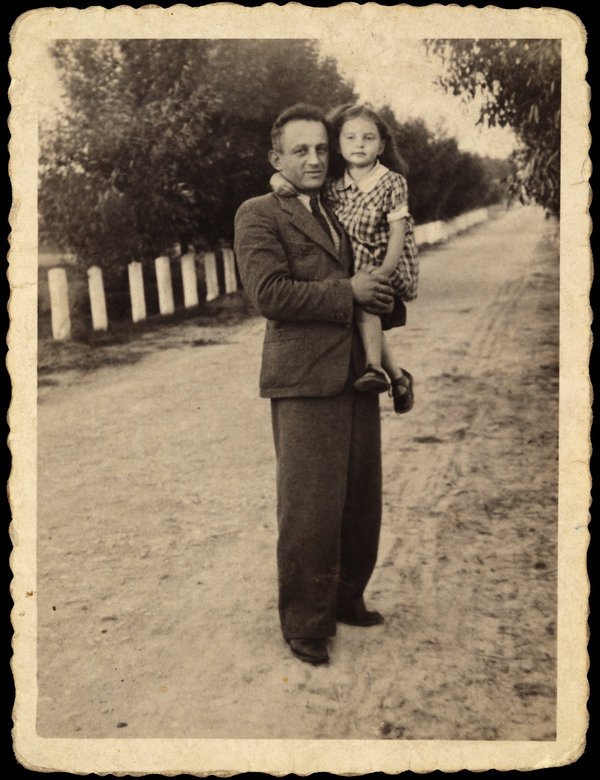
Yaffa Eliach, who as a 4-year-old survived the Nazi massacres of Jews in her Lithuanian town, and went on to document their daily life in a kaleidoscopic book and a haunting, three-story canyon of photographs at the United States Holocaust Memorial Museum in Washington, died on Tuesday at her home in Manhattan. She was 79.
Her death, after a long illness, was confirmed by Thea Wieseltier, a family friend.
After a childhood that might have throttled a person of lesser spine, Professor Eliach (pronounced EL-ee-akh) dedicated herself to the study and memorialization of the Holocaust and its victims.
Starting in 1969, she did so as a professor of history and literature in the department of Judaic studies at Brooklyn College, and by founding the pioneering Center for Holocaust Studies at the Yeshivah of Flatbush in Brooklyn. Though modest in scale, its collection of taped interviews, diaries, letters, photographs and artifacts became a model for dozens of such centers.
Her mission, she said many times, was to document the victims’ lives, not just their deaths, to give them back their grace and humanity. She determined to do so as a member of President Jimmy Carter’s Commission on the Holocaust during a visit to the death camps, where she realized that the victims were portrayed only as bulging-eyed skeletons in ragged striped uniforms, not as the vital people they once were.
Professor Eliach decided to recreate the shtetl she had known in Lithuania — Eisiskes, known in Yiddish as Eishyshok — where 3,500 Jews, almost the entire Jewish population, were killed, by collecting photographs of its inhabitants.
Full necrology here.
Press release, November 9, 2016
For the third year in a row Jewish communities around the world will host challa baking events and Sabbath celebrations. More than 1,006 cities around the world are participating in this enchanting event, and this year Vilnius is one of them. The Lithuanian Jewish Community officially joins the Shabbat Project Thursday, November 10, when we will host an evening of baking that special Jewish bread called challa with Community members and friends.
Challa is a special bread baked for Sabbath and holidays among Jewish families. The process of making and breaking challa is deeply rooted in tradition and religion. The word’s primary meaning is that of loaf or bun, as recorded in the Book of Numbers or Bamidbar in the Old Testament or Tanakh, and was one of the first commandments given the Israelites as they were preparing to leave the wilderness for the Promised Land: “Ye shall offer up a cake of the first of your dough for an heave offering: as ye do the heave offering of the threshing floor, so shall ye heave it.” (Numbers 15:20)
The event will feature a brief history of the Sabbath, music and hymns, kneading the dough together and baking traditional Sabbath challa. Ester Izakson, the wife of the rabbi of Vilnius, will lead the event. She will present the ceremony of separating a portion of the dough for the cohen, the haFrashat khalva, one of the three commandments incumbent of women in Judaism.
We’ll begin activating the yeast at 6:00 P.M. on November 10 at the Bagel Shop Café, Pylimo street no. 4, Vilnius. The Lithuanian Cultural Council is supporting the event.
The event will be attended by Lithuanian Jewish Community chairwoman Faina Kukliansky with family members, foreign ambassadors and guests.
For more information, contact Dovilė Rūkaitė, director of projects for the Lithuanian Jewish community, at projects@lzb.lt
The international Shabbat Project involves more than a million Jews in 84 countries
Tel Aviv is epicenter of global Shabbat initiative in Israel.
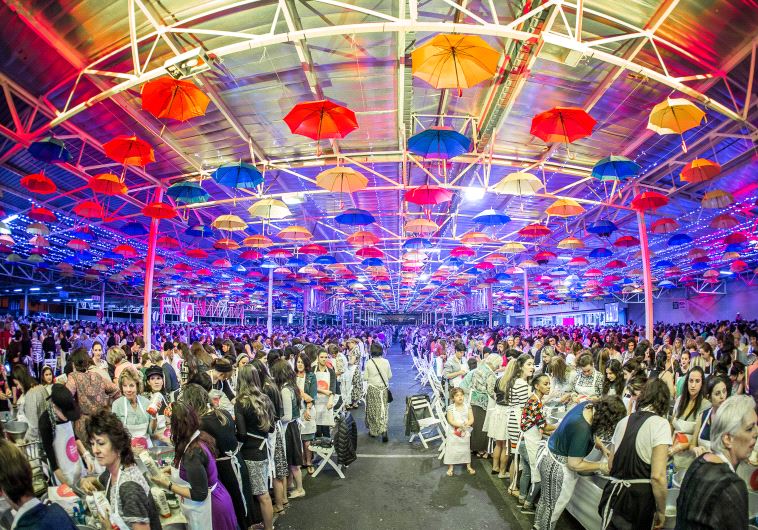
Shabbat Project participants baking challah together in Johannesburg, South Africa.
The number of cities expected to join in this week’s annual global Shabbat is approaching 1,000, and organizers expect it to surpass that number.
This is the third year of the Shabbat Project since it launched in 2014, and the number of participants has grown exponentially from year to year, with an estimated one million having taken part last year in 919 cities and 84 countries across the globe.
This year, 57 new cities have committed to take part, from Lodz in Poland, to Hoorn in the Netherlands, Alphaville in Brazil and Hollywood, USA.
The tag line of this year’s Shabbat Project is “Shabbat can do that.”
“In 2014 and again in 2015, through the transformative power of Shabbat, we’ve seen individuals and communities accomplish great things; things that before were not thought possible,” explains the brains behind the initiative, South Africa’s Chief Rabbi Warren Goldstein. “We’ve seen walls torn down, families rejuvenated, deep feelings awakened, deep friendships formed. This is what Shabbat can do,” he adds.
Full story here.
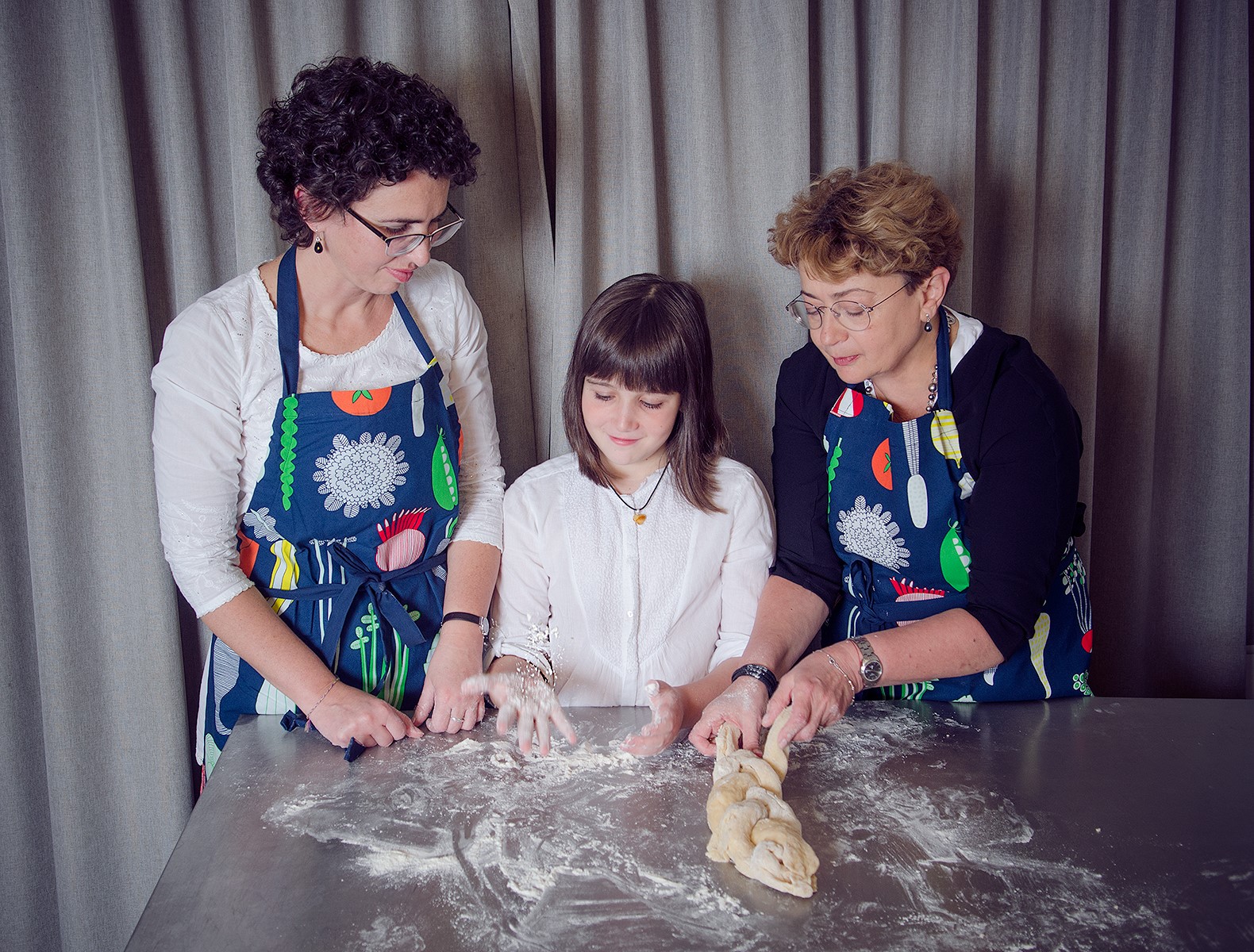
The Lithuanian Jewish Community invites you to participate in the international Shabbos project!
We’re inviting all Community members to come bake challa and celebrate the Sabbath together on November 10 in Vilnius!
Jewish communities around the world will be baking traditional challa bread on November 10. This fun project has been going on for three years and includes Jewish communities in 65 countries. This is the first time the Lithuanian Jewish Community is participating. We’re inviting all regional communities, families, mothers and daughters to gather together and bake challa together in their own communities. Grandmothers, mothers, granddaughters, we’re hoping you will all come knead challa together at one table!
Registration is required because space is limited. goo.gl/fEmzp4
Program:
6:00 P.M. We activate the yeast and knead the dough
6:30 P.M. The story of the Sabbath
7:00 P.M. We braid the challa
7:30 P.M. We bake the challa
More information available here.
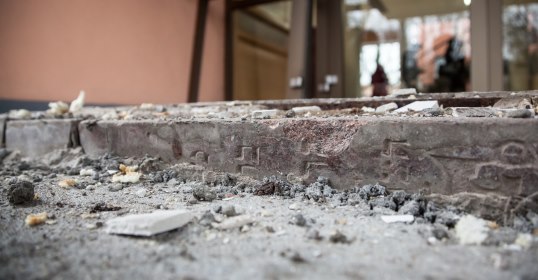
photos: Saulius Žiūra
Information from the Vilnius municipality
Fewer and fewer examples of the barbarousness of the Soviet government remain in Vilnius. Locations where fragments of Jewish headstones are found are being put in order. Recently one such site was found in Antakalnis, where pieces of Jewish grave monuments were discovered in the stairs to the main entrance of the Vilnius Clinical Hospital. This week the Jewish headstones used as steps are being removed and taken to a location dedicated to honoring them, the old Jewish cemetery on Olandų street.
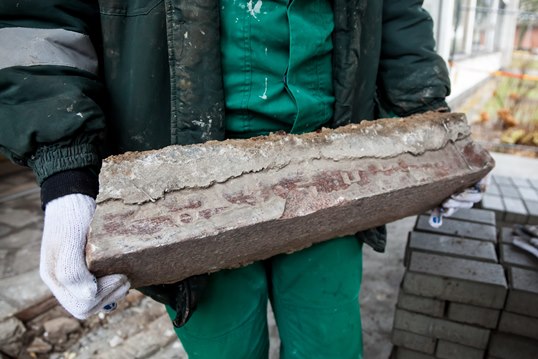
Full story in Lithuanian here.
Dear parents, please register now for your children to attend the annual A Mehaye winter camp, organized every winter by the Lithuanian Jewish Community with the financial support of the Joint Distribution Committee. Children and youngsters aged 7 to 17 are invited to come, have fun, make new friends, see old ones and learn while they’re at it! The camp is scheduled for December 24 to 30.
To register, or for more information, please contact:
soniakaplan@mail.ru
telephone +37067257540
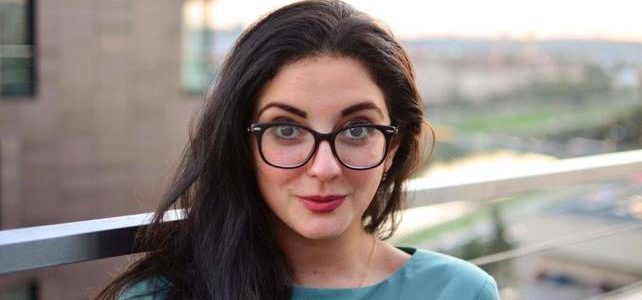
by Jūratė Juškaitė
manoteises.lt
The figure of the Jew remained even after the Holocaust in Lithuania, at Užgavėnės [Shrovetide carnival figure] and in libels concerning the blood of Christian children and matzo bread. These sorts of stories not only remind us how much daily anti-Semitism exists and is even enjoyed among us, but also forces us to think about an uncomfortable matter: who are these people whom we cannot forget, and where are they?
One of them is Amit Belaitė, the director of the Union of Lithuanian Jewish Students. It seems if not for the Holocaust our conversation might have been very simple, without long pauses and deep feelings of guilt. But after decades of silence, questions such as what happened to ‘your’ people, how did they survive, how did the Holocaust inform your experience, seem to erupt from within like a torrent.
Full interview in Lithuanian here.
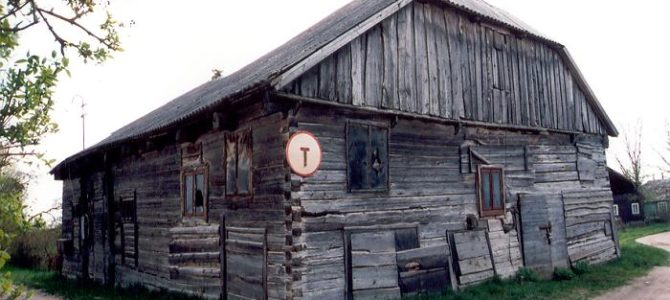
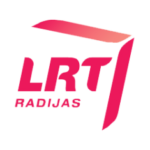
Following the 9:00 A.M. news Tuesday, November 8, Lithuanian National Radio and Television continued their series about Lithuanian shtetls with a trip to Šeduva, which had a thriving and colorful multicultural, multi-linguistic life before the Holocaust, which wiped the town clean of its Jews and left very few material monuments to their former existence there.
How should we commemorate the Jews of Šeduva today? What were their lives like? How did they contribute to the foundation of an independent Lithuanian state? Vita Ličytė attempts to answer these and other questions in the fourth episode in the on-going series.
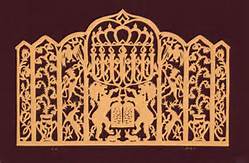
An event to open an exhibition of Klaidas Navickas’s paper cutout works will be held at the LJC on the third floor at 6:00 P.M. on November 17.
Klaidas Navickas was born in Raseiniai, Lithuania, on November 30, 1962. He currently lives in Grigiškės and is an attorney and public servant. He began cutting paper into art in 1988. He has been a member of the Union of Lithuanian Folk Artists since 1991. In 2005 he was recognized as a working artist and in 2009 as a master of traditional arts and crafts. He has held personal exhibits of his paper cutouts at Expo 2005 in Japan; Linz, Austria; Expo 2010 in China; Gdansk and Warsaw; Philadelphia; Mogilev Podolsky, Ukraine; Moscow and St. Petersburg and Minsk. He has done over ten exhibitions of his work in Lithuania. A permanent exhibit has been on display in his workshop in Vilnius since 2003. He has published two catalogs of his cutouts.
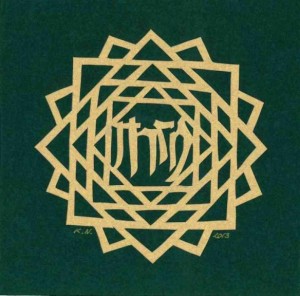
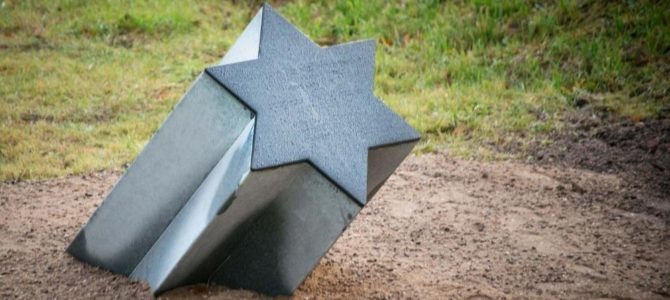
Kauno.diena.lt
A new Holocaust memorial was unveiled a the Seventh Fort in Kaunas. About 3,000 people were murdered at the Seventh Fort in July, 1941. Human remains were discovered at the largely abandoned site several years ago. The remains were turned over to the Kaunas municipality but have now been reburied at the mass grave site.
The Star of David stone monument appears to be springing up from the earth. It was made by Alfonsas Vaura. The sculpture is accompanied by three lights which come on at night. The project was financed by the Kaunas municipality.
Full story in Lithuanian here.
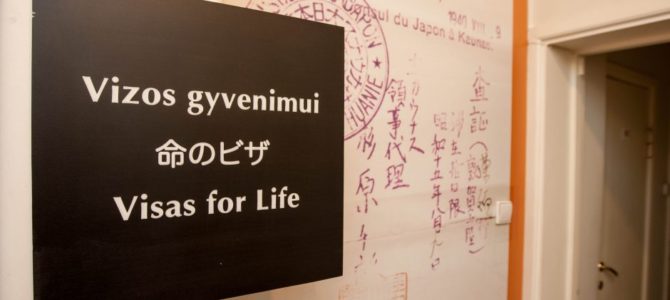
Long-awaited renovation work has finally begun at the museum set up at the house and office of Japanese diplomat Chiune Sugihara in Kaunas, Lithuania. So far renovation is going on inside the house. The façade also requires repair, but there are reports there are problems in financing all the repairs needed at this point in time.
The second floor of Sugihara House is currently being refurbished and all exhibits have been placed on the ground floor temporarily. The ground floor houses the diplomat’s office. When the second floor is finished, there will be more exhibit space drawing even more visitors from Japan, Lithuania and around the world fascinated by this man who rescued so many Jews from the Holocaust.
Full story in Lithuanian here.
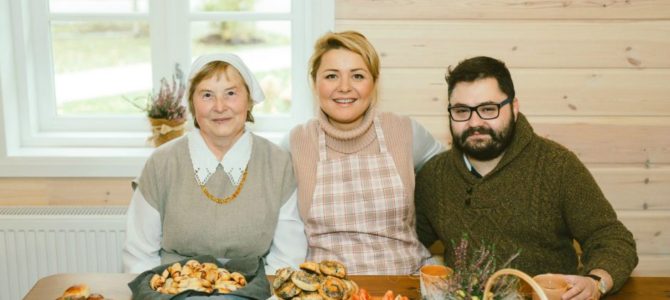
“Empty, boarded up, gone, pulled up the roots,” these are the words opera soloist Rafailas Karpis used to describe extant Jewish synagogues in Lithuania following a trip he made through northern Lithuania with Beata Nicholson, a noted Lithuanian journalist and television personality who produces a cooking show called “Keliauk ir ragauk. Lietuva” [Travel and Taste: Lithuania]. Karpis said the wooden synagogues of Lithuania used as store houses or sports gyms during the Soviet era are still being used as such in many locations. But not at the synagogue complex in Joniškis, rebuilt at the initiative of the local communities, where Beata and Rafailas will spend most of their time during the upcoming episode.
Full article in Lithuanian here.